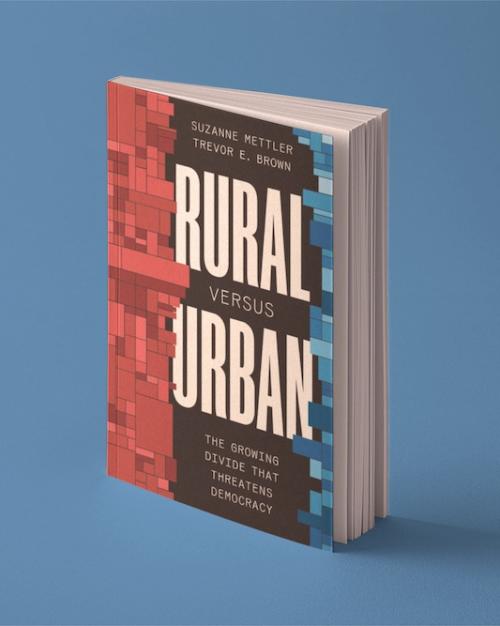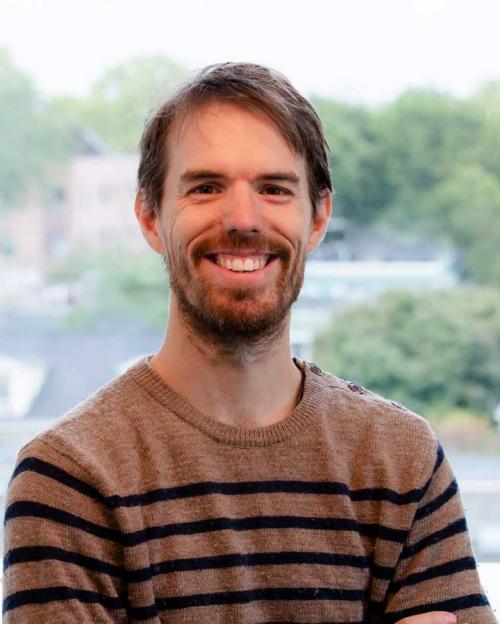Charles Petersen, Klarman Postdoctoral Fellow in history in the College of Arts and Sciences, studies 20th-century American history to better understand the rise of social and economic inequality in recent decades.
“How did we go from the relative economic equality of the 1950s, when the average CEO made 20 times as much as the average worker, to the extreme inequality of the present, where CEOs make more like 400 times the pay of the average worker?” Petersen said. “The big picture of my research is bringing the tools of a historian to bear on these questions that sociologists and economists have been asking for a while.”
A key concept Petersen confronts in his work is meritocracy, a social and economic system where hierarchy is said to be based on talent, intelligence or achievement. In his doctoral dissertation at Harvard University, “Meritocracy in America, 1885-2007,” he argued that many Americans accept vast inequality because they believe deeply in meritocracy.
“Ten years ago, if you had asked people what they thought of meritocracy, most of them would say that racism and sexism are bad and we need to eliminate them, but if we then arrive at a real meritocracy, that would be great – we want people who deserve it to be in positions of power and to earn what they deserve. But in the last few years, meritocracy has been the target of more criticism, which I appreciate,” Petersen said. “I’m trying to do a radical critique of this very widely held belief.”
This criticism has come along with the Black Lives Matter movement and increasing skepticism of capitalism, Petersen said. A member of the first cohort of six Klarman Fellows, he is using his three-year fellowship to write a book about meritocracy in America that he hopes will be both academically rigorous and appeal to a wide audience.
The Klarman program offers early-career researchers independence from the constraints of particular grants, enabling them to focus on cutting-edge research. Petersen is hosted by Aaron Sachs, professor of history (A&S), who emphasizes artful writing in the field of history.
“Charles is unbelievably skilled at conceiving research questions and then telling stories in ways that explain how societies set traps for themselves,” Sachs said. “His work will make a huge splash not only among historians but also in the wider world of American cultural politics.”
Petersen has written for the New York Times, the New York Review of Books, the Nation and the Wall Street Journal, and he is an editor of n+1, a journal of literature and politics.
“Charles and I initially met through n+1 magazine, where he has long been a key editor,” said Aziz Rana, the Richard and Lois Cole Professor of Law at Cornell Law School and secondary host to Petersen’s fellowship. Working with Petersen as his editor on several essays he wrote for n+1, Rana was impressed with Petersen’s deep knowledge of American politics and history, he said, finding his dissertation on meritocracy “incredibly incisive.”
“Although there is a fair amount of popular criticism of the failure of the U.S. to live up to meritocratic ideals, there has been less sustained historical work on where the idea came from, how it got so entrenched in the late 20th century, and what that means for the current state of American institutions,” Rana said. “I think Charles’ work will be a touchstone in the study of both American education and intellectual history more generally.”
Petersen is also starting new research on the history of companies using stock options to pay both regular employees and top executives, another facet of the story of inequality, he said, as well as a contribution to the deeper themes of his research into American history.
“If we want to change society, if we want a more equal world,” Petersen said, “we need to ask ourselves why we believe in inequality. Why do we think it’s right? Why do we think it’s just?”





